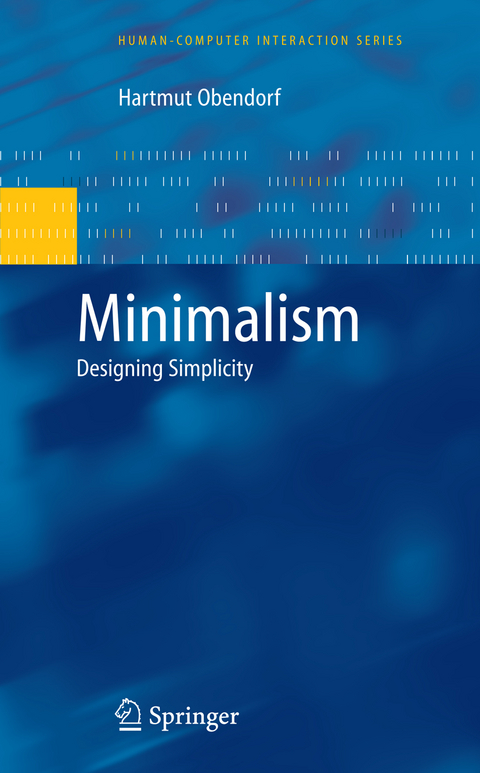
Minimalism
Designing Simplicity
Seiten
2011
Springer London Ltd (Verlag)
978-1-4471-2284-5 (ISBN)
Springer London Ltd (Verlag)
978-1-4471-2284-5 (ISBN)
The notion of Minimalism is proposed as a theoretical tool supporting a more differentiated understanding of reduction and thus forms a standpoint that allows definition of aspects of simplicity.
Possible uses of the notion of minimalism in the field of human–computer interaction design are examined both from a theoretical and empirical viewpoint, giving a range of results. Minimalism defines a radical and potentially useful perspective for design analysis. The empirical examples show that it has also proven to be a useful tool for generating and modifying concrete design techniques.
Divided into four parts this book traces the development of minimalism, defines the four types of minimalism in interaction design, looks at how to apply it and finishes with some conclusions.
Possible uses of the notion of minimalism in the field of human–computer interaction design are examined both from a theoretical and empirical viewpoint, giving a range of results. Minimalism defines a radical and potentially useful perspective for design analysis. The empirical examples show that it has also proven to be a useful tool for generating and modifying concrete design techniques.
Divided into four parts this book traces the development of minimalism, defines the four types of minimalism in interaction design, looks at how to apply it and finishes with some conclusions.
Designing for an Age of Complexity.- Minimalism: Introduction and Synopsis.- Defining Minimalism.- In Search of “Minimalism”— Roving in Art, Music and Elsewhere.- Minimalism for Interaction Design: a Proposal.- Rethinking Minimalism.- Minimalism, Industrial Design and HCI.- Minimalism, Simplicity and Rules of Design.- Applying Minimalism.- Detecting the Minimal.- Designing the Minimal.- Reflections on Minimalism.- Minimalism Revisited.- Minimal Aesthetics.- Unconnected Ends.- Conclusion.
| Erscheint lt. Verlag | 30.11.2011 |
|---|---|
| Reihe/Serie | Human–Computer Interaction Series |
| Zusatzinfo | 99 Illustrations, black and white; XX, 340 p. 99 illus. |
| Verlagsort | England |
| Sprache | englisch |
| Maße | 155 x 235 mm |
| Themenwelt | Mathematik / Informatik ► Informatik ► Betriebssysteme / Server |
| Informatik ► Software Entwicklung ► User Interfaces (HCI) | |
| ISBN-10 | 1-4471-2284-4 / 1447122844 |
| ISBN-13 | 978-1-4471-2284-5 / 9781447122845 |
| Zustand | Neuware |
| Haben Sie eine Frage zum Produkt? |
Mehr entdecken
aus dem Bereich
aus dem Bereich
Aus- und Weiterbildung nach iSAQB-Standard zum Certified Professional …
Buch | Hardcover (2023)
dpunkt Verlag
CHF 48,85
Lean UX und Design Thinking: Teambasierte Entwicklung …
Buch | Hardcover (2022)
dpunkt (Verlag)
CHF 48,85
Wissensverarbeitung - Neuronale Netze
Buch | Hardcover (2023)
Carl Hanser (Verlag)
CHF 48,95


